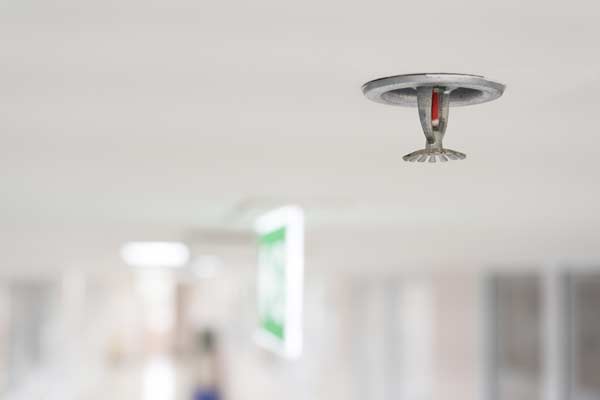Fire protection isn’t a one-size-fits-all game — especially when lives and livelihoods are on the line. If you’re managing a commercial or industrial facility, you’ve likely heard the terms fire alarm system and fire suppression system tossed around.
They both sound important. (They are.) But they’re not the same thing — and knowing the difference could save you time, money, and serious headaches.
What is a Fire Alarm System?
Think of a fire alarm system as your building’s early warning defense. It’s built to detect, alert, and evacuate — fast.
What It Does:
- Detects smoke, heat, or flame
- Triggers audible and visual alarms
- Sends alerts to monitoring centers or fire departments
- Notifies occupants to evacuate
These systems don’t put fires out — they tell you there’s a fire and get people moving. That’s why we design our fire alarm systems for maximum coverage and fast detection — so there’s no delay between “something’s wrong” and “everyone’s safe.”
Pro Tip: A great fire alarm setup doesn’t just blare a horn. It integrates with sprinklers, suppression systems, and your building’s emergency protocols.
What is a Fire Suppression System?
Fire suppression systems go one step further — they actively extinguish or contain the fire once it’s detected.
What It Does:
- Activates automatically or manually
- Uses agents like water, gas, foam, or chemicals
- Targets specific high-risk areas (kitchens, server rooms, industrial zones)
Unlike sprinklers (which use water), suppression systems are often clean agent systems or dry chemical systems, depending on the environment. Our fire suppression systems are customized to fit your space — whether that’s a high-tech data center or a grease-filled kitchen line.
Fun Fact: Water can destroy electronics. That’s why clean agent suppression is critical for Data Centers, hospitals, and telecom hubs.
Key Differences at a Glance
| Feature | Fire Alarm Systems | Fire Suppression Systems |
| Primary Function | Detection + Notification | Extinguishing the Fire |
| Typical Components | Smoke detectors, pull stations, strobes, horns | Nozzles, tanks, chemical agents |
| Response Type | Alerts people and systems | Puts the fire out or contains it |
| Required For | Most commercial buildings | High-risk, specialized areas |
| Integration | Works with sprinklers/suppression | Often triggered by alarms |
So… Which One Do You Need?
The Short Answer: Both.
A fire alarm system tells you there’s a problem. A suppression system solves it — or at least contains it until help arrives.
If your building is any kind of commercial facility, you’ll need a fire alarm system. Period. Codes require it, and more importantly, lives depend on it.
If you’re managing a data center, restaurant, lab, or industrial site, suppression is likely essential too.
Not sure what you need? That’s what we’re here for.
Ironsmith Fire Does Both — and We Do It Right
We don’t just install systems. We engineer protection tailored to your building, your team, and your business goals.
From fire alarm systems in Orlando to fire suppression systems in Nashville, Ironsmith Fire has you covered — with certified design, installation, inspection, and maintenance services.
Ready to Build a Real Fire Protection Plan?
Let’s talk. Whether you’re upgrading, retrofitting, or starting from scratch, we’ll walk you through your options and build the system your building actually needs.

